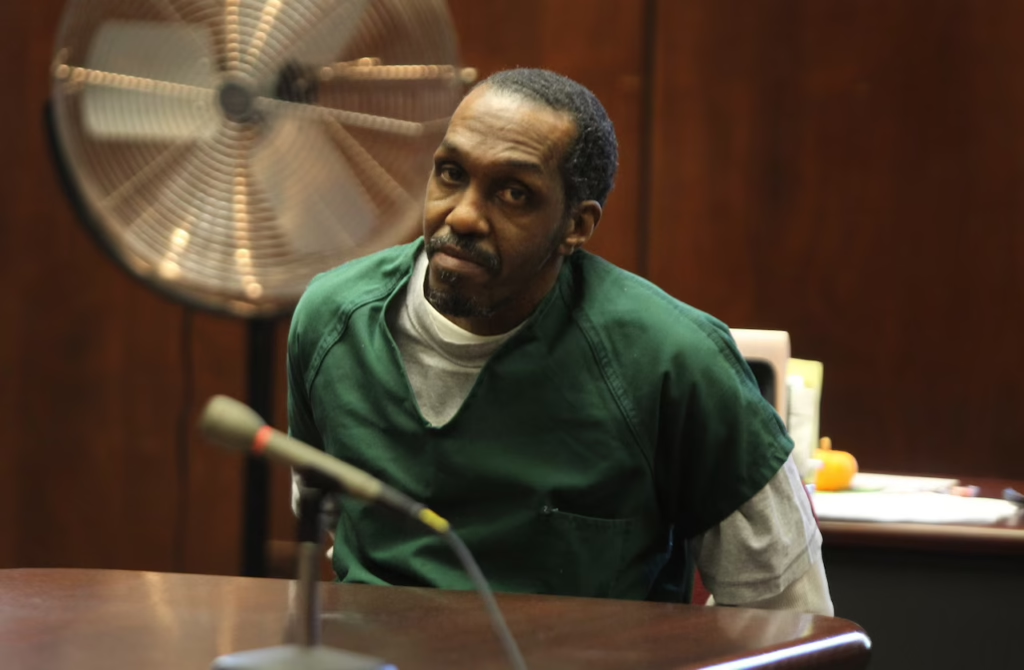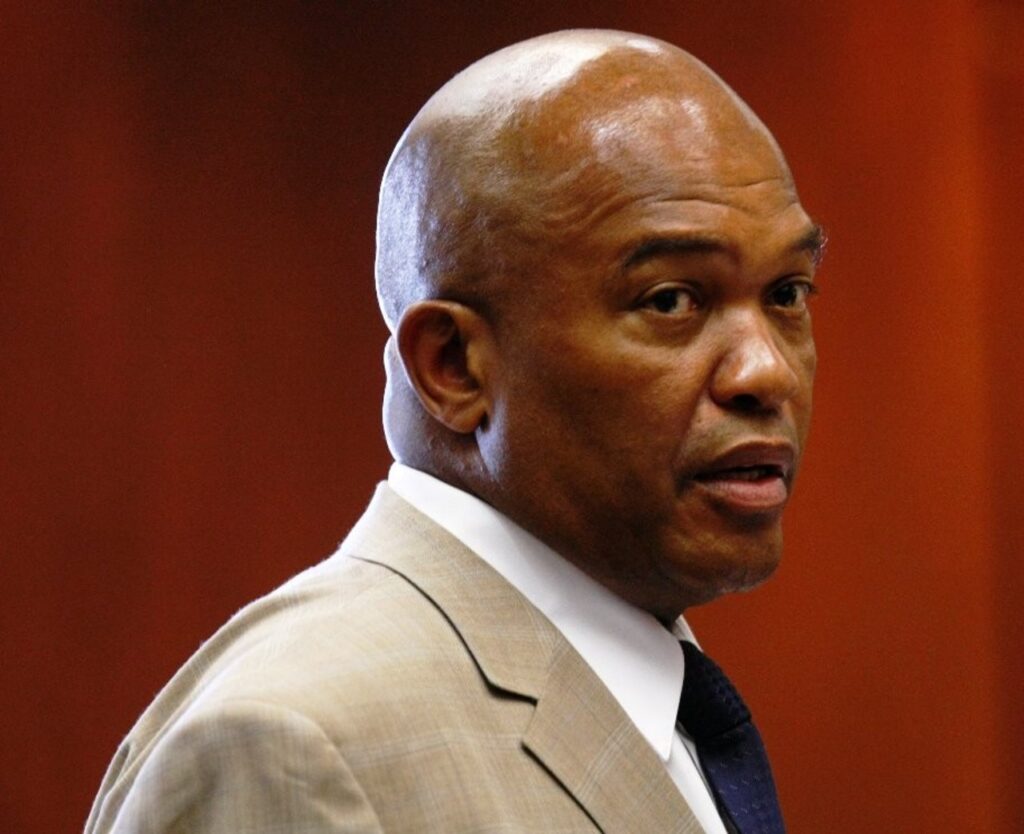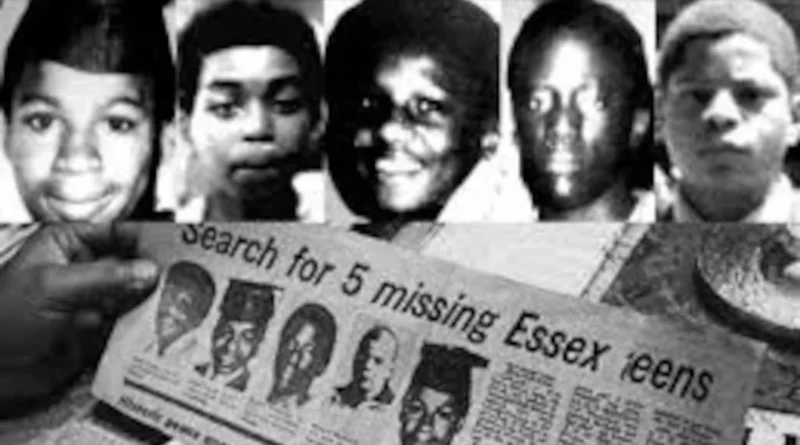The Clinton Ave Five Disappearance That Shook Newark New Jersey
The disappearance of five teenagers on Clinton Avenue in Newark, New Jersey, on August 20, 1978, has haunted the community for decades. The mystery of what happened to Randy Johnson, Ernest Taylor, Alvin Turner, Michael McDowell, and Melvin Pittman remained unsolved for over three decades. The case took a shocking turn in 2010 when Philander Hampton, a man who had been close to the victims, confessed to their murders and implicated his cousin, Lee Evans, in a horrifying conspiracy. Despite Hampton’s confession, Evans maintained his innocence, representing himself in court and ultimately being acquitted of all charges in 2011.
Disappeared Into Thin Air
On a warm summer evening on August 20, 1978, five teenage boys from Newark, New Jersey, vanished without a trace. The group, known as the “Clinton Avenue Five,” included Randy Johnson, Ernest Taylor, Alvin Turner, Michael McDowell, and Melvin Pittman, all between the ages of 16 and 17. These young boys were neighborhood friends, often spending time together, and their sudden disappearance sent shockwaves throughout the Newark community.
The last time the boys were seen alive, they were working for Lee Evans and Philander Hampton, helping move boxes and equipment as part of a labor job. Witnesses reported that they were seen loading items into Evans’ van on Clinton Avenue, and then, as if they had vanished into thin air, they were never seen again. Families of the victims grew desperate, but initial investigations hit a dead end. No bodies were found, and despite extensive searches and media coverage, the case grew cold.
The Struggle to Find Answers
For years, the families of the Clinton Avenue Five sought closure, but the case remained unsolved. Newark police investigated multiple leads over the years, but nothing materialized. The lack of physical evidence and eyewitness testimony made it difficult to build a case, leading authorities to believe that the boys were either kidnapped or had fallen victim to foul play.
Speculation abounded, with some believing that the boys had gotten involved in drugs or gang activity, while others feared they had been abducted and killed. The community was left with more questions than answers, and the pain of not knowing what happened to their loved ones only deepened with time.
The families never gave up, continuing to push for answers. Some held vigils, others made public appeals, but the case remained shrouded in mystery for over three decades. The sheer length of time the case remained open, with no bodies recovered and no clear motive established, made it one of Newark’s most baffling unsolved crimes.
The Breakthrough: Philander Hampton’s 2010 Confession

Everything changed in 2010 when Philander Hampton, Evans’ cousin, came forward with a shocking confession. Hampton, who had been a prime suspect in the original investigation but was never formally charged, told authorities that he and Lee Evans had conspired to kill the five teenagers in 1978.
According to Hampton, the boys had been killed because they were suspected of stealing marijuana from Evans. He claimed that on the day of the murders, Evans lured the boys into his van under the pretense of a work assignment. Hampton confessed that the boys were driven to an abandoned house in Newark, where they were locked inside, and the building was set on fire, burning them alive.
This chilling revelation provided the breakthrough the authorities had been waiting for. Hampton’s confession, combined with corroborating evidence, led to his arrest and charges of murder. He also implicated Evans as the mastermind behind the plot. For the families of the victims, Hampton’s confession was both devastating and a relief—it finally brought some answers to their decades-long agony, but the horrific nature of the murders was almost too much to bear.
Lee Evans: The Accused Mastermind Maintains His Innocence

With Hampton’s confession pointing the finger directly at him, Lee Evans was also arrested and charged with five counts of murder. However, Evans adamantly maintained his innocence, claiming he had no involvement in the killings. Evans, who had lived quietly for years following the boys’ disappearance, was known in the community and had always denied any wrongdoing.
Despite the gravity of the charges against him, Evans made the surprising decision to represent himself in court. Without the assistance of a lawyer, he chose to defend his innocence, questioning witnesses and cross-examining Hampton, the man who had accused him of orchestrating the murders.
Throughout the trial, Evans argued that there was no physical evidence linking him to the crime. Indeed, no bodies were ever recovered, and there were no eyewitnesses to the alleged murders. Evans maintained that Hampton’s confession was coerced or fabricated, casting doubt on his credibility. He claimed that the prosecution’s case relied heavily on Hampton’s testimony, which he argued was unreliable and riddled with inconsistencies.
The 2011 Acquittal: A Stunning Verdict
In November 2011, after a tense and emotional trial, Lee Evans was acquitted of all charges. The jury, after hearing weeks of testimony and deliberating the evidence, found that the prosecution had not proven beyond a reasonable doubt that Evans was responsible for the deaths of the Clinton Avenue Five. The absence of physical evidence and the reliance on Hampton’s testimony, which was questioned throughout the trial, ultimately led to the acquittal.
For many, the verdict was shocking. How could a man implicated in such a heinous crime, after a direct confession by his co-conspirator, walk free? The families of the victims were devastated once again. They had hoped for justice, but instead, they were left with more questions. Some of the victims’ relatives expressed outrage, while others resigned themselves to the reality that they might never know the full truth of what happened to their loved ones.
Philander Hampton’s Plea Deal and Sentence
While Lee Evans walked free, Philander Hampton did not escape justice. In exchange for his confession and cooperation with the authorities, Hampton struck a plea deal that saw him convicted of lesser charges. He was sentenced to 10 years in prison for his role in the murders, a sentence that many felt was far too lenient for such a horrendous crime.
Hampton’s plea deal, however, was a critical piece of the puzzle in reopening the case and bringing it to trial, even if it did not result in Evans’ conviction. His testimony, though ultimately insufficient to convict Evans, gave the victims’ families some measure of closure, even if it was incomplete.
The Aftermath: A Community Still Searching for Answers
Today, the Clinton Avenue Five case remains an open wound for the Newark community. Despite Hampton’s confession and Evans’ trial, the fact that no bodies were ever recovered has left a lingering sense of uncertainty. What truly happened to the five boys on that fateful August day in 1978? While Hampton’s testimony paints a grim picture, the lack of forensic evidence continues to cast shadows over the full story.
For the families of Randy Johnson, Ernest Taylor, Alvin Turner, Michael McDowell, and Melvin Pittman, the acquittal of Lee Evans was a bitter blow. The pain of losing their sons, compounded by the lack of definitive justice, continues to haunt them. The case, while technically closed, remains unresolved in the eyes of many.
The Clinton Avenue Five disappearance is a stark reminder of the cold realities of justice. Even with a confession, even with a suspect on trial, the legal system requires more than just words to convict. It demands evidence, and in this case, the evidence was elusive.
Reflections on Justice and the Limits of the Legal System
The Clinton Avenue Five case highlights the limitations of the legal system when faced with historical cases lacking physical evidence. While the justice system strives to be fair and impartial, the challenges of prosecuting a case that hinges on a decades-old confession can be insurmountable. The outcome of Lee Evans’ trial demonstrates the complexity of such cases and the difficulty in securing a conviction without solid proof.
For Newark, the Clinton Avenue Five disappearance will forever be a tragic chapter in the city’s history. The boys’ fates may never be fully understood, but their memory lives on in the hearts of those who loved them. Their story is one of tragedy, heartbreak, and a community’s enduring search for justice.
Discover more from City Towner
Subscribe to get the latest posts sent to your email.




